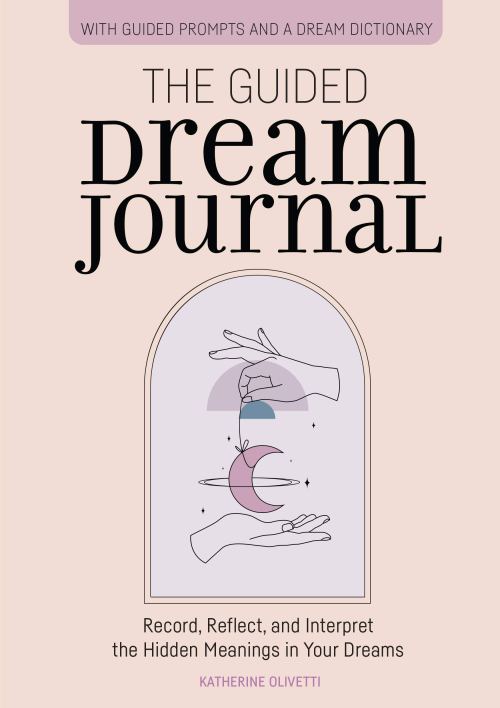Our editors independently select these products. Making a purchase through our links may earn Well+Good a commission
Keeping a Dream Journal Can Unlock the Power to Your Subconscious—Here’s How To Do It
Keeping a dream journal can help you understand your subconscious. Here, learn tips for how to keep a dream journal, according to pros.

The human mind works in fascinating ways—especially when we’re dreaming. Dreams can sometimes function as a vehicle for a person’s subconscious to alert them to things they might not be dealing with in their waking hours. For example, if you have a dream about snakes, it might signify death, rebirth, creativity, or sexuality. Obviously, those potential meanings are wide-ranging. With that in mind, being able to decode what a dream means may require you to introspect about what else happened in the dream and, more crucially, what is going on in your waking life. To help you sort all of this, you might consider using a dream journal.
Experts in This Article
Los Angeles–based psychotherapist and writer
astrologer, wellness consultant, dream interpreter, and author of The Complete Guide to Astrological Self-Care and The Complete Book of Dreams
“Our dreams can reveal a lot to us about parts of ourselves that might be needing attention,” says psychotherapist Annie Armstrong Miyao. “Dreams are also a way for us to process our experiences, express deep desires, sort out things that have been bothering or confusing us, or attempt to prepare for something that lies ahead or frightens us.”
Keeping a dream journal is key to fully processing the messages from your dreams and boasts myriad well-being benefits by way of introspection. Below, find out what a dream journal is, the benefits of using one, and best practices to keep in mind.
What is a dream journal?
“A dream journal is any sort of book where you document your dreams,” says astrologer and dream interpreter Stephanie Gailing, author of The Complete Book of Dreams, adding that documenting dreams doesn’t just mean writing down what happened in them, like a story. Some people like to draw their dreams, and others prefer to record them on their phone, she says.
To decide how you might most effectively record your dreams in a dream journal, Miyao suggests you opt for whatever method “is easy and catches the dream before it starts to slip away with the day.” After all, you want to be realistic about what you can (and are willing to) actually accomplish to fully claim the benefits of keeping a dream journal.
The benefits of keeping a dream journal
Similar to how creative journaling can improve your mental health, keeping a dream journal offers its own introspective benefits, says Miyao. “Not only will you most likely begin to dream more, but you can also more easily notice and understand the patterns and themes, the symbolic language, of your dreams,” she says. “When you record dreams, they can serve as markers of growth and change.”
“When you record dreams, they can serve as markers of growth and change.” —psychotherapist Annie Armstrong Miyao
According to Gailing, when you’re consistent with the upkeep of your dream journal, you’re readily acknowledging that your dreams have significance, which encourages the dreams to continue. “You can then think about them, reflect on them, and see what it is that they’re mirroring back to you in terms of your inspirations, motivations, [or] emotions,” she says, adding that this practice helps you ponder on “things that may not rise to the surface of your consciousness during the day.”
6 tips for how to best use a dream journal
1. Keep the dream journal close to your bed
“The best thing to do is keep it right by your bedside, with either a pen that works or a pencil that’s sharpened,” says Gailing, adding that this will prevent you from having to search for your dream journal and writing tool in the middle of the night, risking the chance that you may forget the dream as you look. It’s best practice to record the dream as soon as you wake up, while it’s most fresh in your mind.
2. Write in your dream journal even when you don’t have or remember a dream
Since keeping a dream journal can actually help you dream more, it’s important to utilize it even if you can’t remember what you dreamt or if you didn’t dream anything at all.
“Even if you don’t remember your dream, I always encourage people to still document,” says Gailing. “You want to [do this] because that is keeping the practice going. It’s still this attestation that [you] do dream.“
3. Date and title each entry
Even if you don’t have a dream or are able to remember it, you “definitely should title and date” all of the entries, says Gailing, because doing so may make connections and patterns between your dream habits and themes. Dating and titling your entries might also be helpful as you review the entries you’ve input over time.
4. Write in present tense
“This is to help you connect to the experience, the emotion of the dream,” says Miyao. “The window to that certain part of yourself that the dream creates might be about working through some complicated emotions,” she adds.
Writing in the present tense can be helpful for sorting through thoughts or emotions that are related to your dream because as you’re recounting it, you’re awake and adept at working through a given emotion.
5. Be curious about all aspects of your dreams
Miyao says that being curious about your dream in its entirety—including symbols, location, your age in the dream, and the feelings that came up in the dream—can lead to you making connections to aspects of your present life.
One way to frame the dream, she adds, is to ask, “What is it calling for? What needs tending to or expression?” To answer this question, Armstrong Miyao suggests sharing the dream with someone who also sees their dreams as significant.
Being curious and playing close attention to your dreams, adds Miyao, “can provide space for the parts of you that might not otherwise have space to show up in your busy day-to-day life.” That’s because dreams might help you “tend to some of the more challenging energetic struggles—personal or relational—you are managing and help you feel more wholeheartedly connected to your life,” says Miyao.
6. Make time to go through your dream journal
Whether you have time to do this as a daily, weekly, or monthly practice, Gailing and Miayo agree that recounting your entries is one of the most important parts of ensuring that your dream journal practice reaches its full potential in terms of introspection and well-being.
“When you [have your dreams] documented together, if you’re reading through several, you may start to see a pattern,” says Gailing. These patterns go beyond the dreams themselves, sometimes extending to how you’re feeling during your waking hours. Moreover, says Gailing, dreams can be “an incredible reservoir for creative ideas,” which would be great to revisit when you’re in a creative rut.
3 options if you’re shopping for a dream journal
While a dream journal doesn’t necessarily have to be a physical notebook, some people prefer putting pen to paper. If you’re looking to do that, consider these three physical dream journals.

Dreamer’s Journal — $17.00
This journal comes complete with information about common dream symbols as well as a dream dictionary. Each page also features a built-in dateline so you easily reference when you had each dream.

The Guided Dream Journal — $12.00
If you struggle to write with no prompt, this dream journal is calling your name. While it does have an empty section for you to pour out your thoughts, it also offers guiding questions on each page, like “What are the main themes of your dream at this time?” and “Where did your dream take place?”
ThirdLove Just Launched Bras That Help Balance Your Body Temperature—Here’s Why That’s a Game-Changer for Women in All Life Stages

These Are the Only Types of Underwear You Should Be Wearing, According to Gynecologists

These Are the Summer Essentials You Should Bring With You Every Time You Leave the House, According to a Derm and an RD


Celestial Journal — $10.00
On the other hand, if prompts tend to give you writer’s block, you might want to opt for this notebook-style dream journal that gives you 160 pages to free-write.
Oh hi! You look like someone who loves free workouts, discounts for cutting-edge wellness brands, and exclusive Well+Good content. Sign up for Well+, our online community of wellness insiders, and unlock your rewards instantly.
Sign up for the Well+Good SHOP Newsletter
Get exclusive deals on wellness, beauty, fitness, and food products that have been hand-picked by our editors.
Got it, you've been added to our email list.







